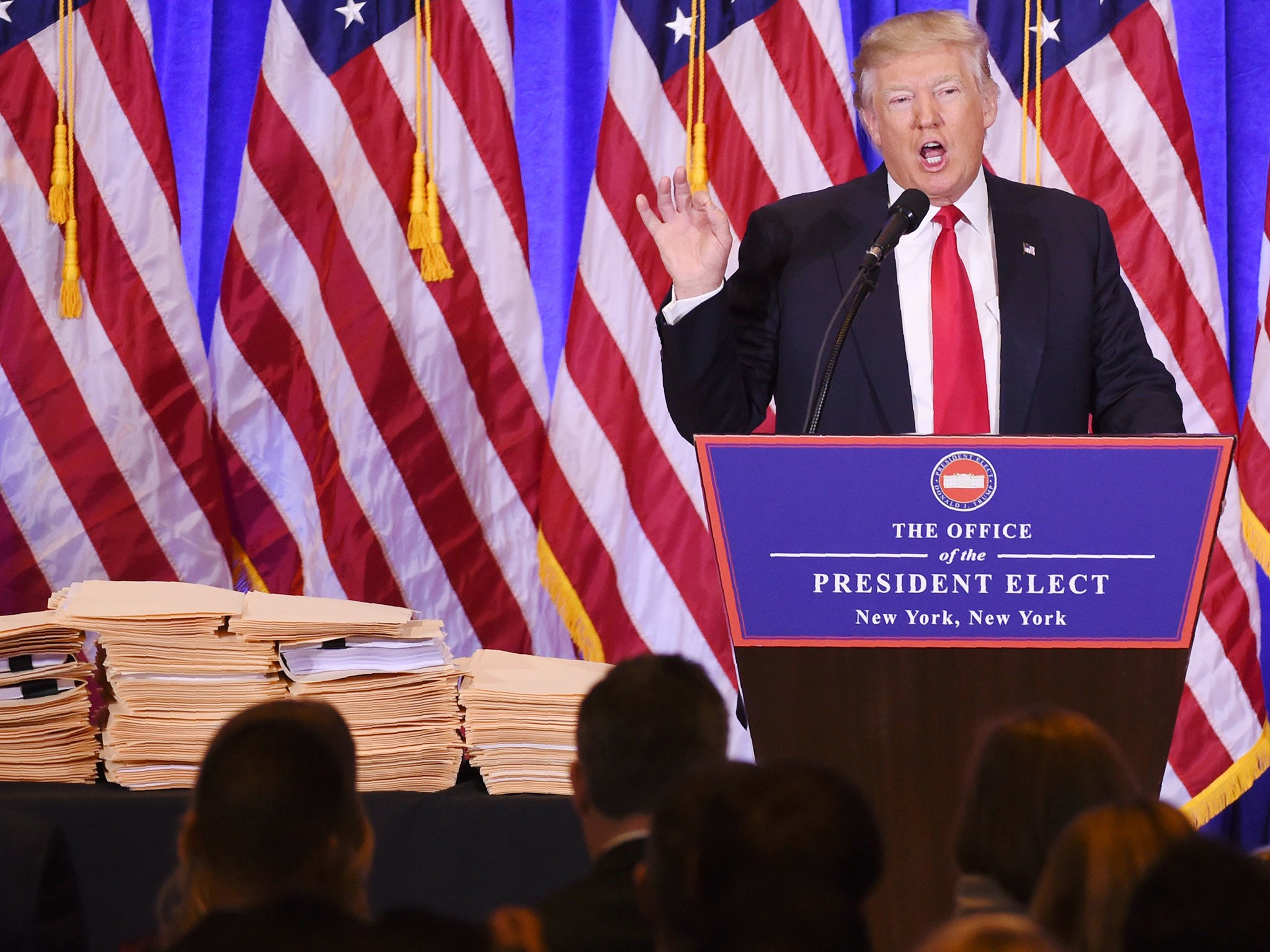Just because Trump has technically handed over control of his businesses doesn't mean he'll abandon his interests
If a good opportunity were to arise to build a Trump Tower in St Petersburg could the managers go ahead? They certainly couldn’t without his knowledge, and if they did to what extent might that compromise relations with Russia?


There are, on my quick tally, some 19 Trump Towers in the world, though not all have his name emblazoned on them. But there are none in Russia. There have been plans to build something on several occasions, most recently last summer, but as yet no ground has been broken.
If you are in international property development you will inevitably be looking at sites in difficult locations – and dealing with the difficult governments there. But most property developers do not end up as president of the United States, so the inauguration of Donald Trump adds a new dimension to an age-old issue, the relationship between politics and money.
The interaction has many facets. For most of history people have gone into politics to make money. They do in much of Africa and Asia now, they used to in communist Eastern Europe, and – put it this way – the entourage of Vladimir Putin in Russia has not done too badly.

We in the West see this as corruption, and while residual cases of such corruption still occur they are generally jumped on by our societies. In Britain a handful of MPs have gone to jail for fiddling their expenses. In Germany the donations scandal at the CDU led to Angela Merkel, who was not implicated, rising to its leadership. In France the former finance minister, now head of the IMF, Christine Lagarde, was recently convicted of negligence in approving a state payment to an industrialist, though this did not constitute a criminal record and there was no punishment. Even in Italy, ranked by Transparency International as the most corrupt major economy in Europe, there is a lot of pressure to clean up their act.
Fighting corruption requires constant vigilance but by making examples of wrong’uns, western democracies have managed on the whole to keep their political systems reasonably clean. Retired politicians are free to make money, and a few, including Tony Blair and Bill Clinton, have proved very good at it. But wise serving politicians know the risk-reward ratio plays in favour of keeping things clean.
Donald Trump’s inauguration creates a new situation. He has not gone into politics to make money, though many people ascribed his initial candidature to that. His money enabled him to reach the presidency without have to cut deals with the usual army of wealthy funders. In that sense he is less beholden to corporate America than most of his recent predecessors. Yet in his choice of cabinet nominees he has very much favoured both Wall Street and US Inc. – big money and big business. The stock markets have duly cheered him on.
Now he is about to become president his wealth is an issue. What does he do with it? Can he really step back and hand control to a blind trust? If a good opportunity were to arise to build that Trump Tower in St Petersburg could the managers go ahead? They certainly couldn’t without his knowledge, and if they did to what extent might that compromise relations with Russia? The present allegations, whether true or not, are a sideshow in comparison to the difficulties ahead.
We caught some flavour of those difficulties in the President-elect’s press conference. He is quite rightly striving to create a wall between his business interests and his political role, and the new business structure designed to do so deserves a fair wind. How his business interests are handled in practice will certainly be subject to massive scrutiny, as they must.
But this is not just a world of legal and administrative structures. If he is to be an effective president he will somehow have to rise above his past. His wealth could enable him to do so but he will have to find a way of stepping back from being a businessman, even – and this is big ask for a 70-year-old – of thinking like a businessman.
Those Trump Towers will remain around the world. But he does not want to be remembered for those, does he?
Join our commenting forum
Join thought-provoking conversations, follow other Independent readers and see their replies
Comments
Bookmark popover
Removed from bookmarks